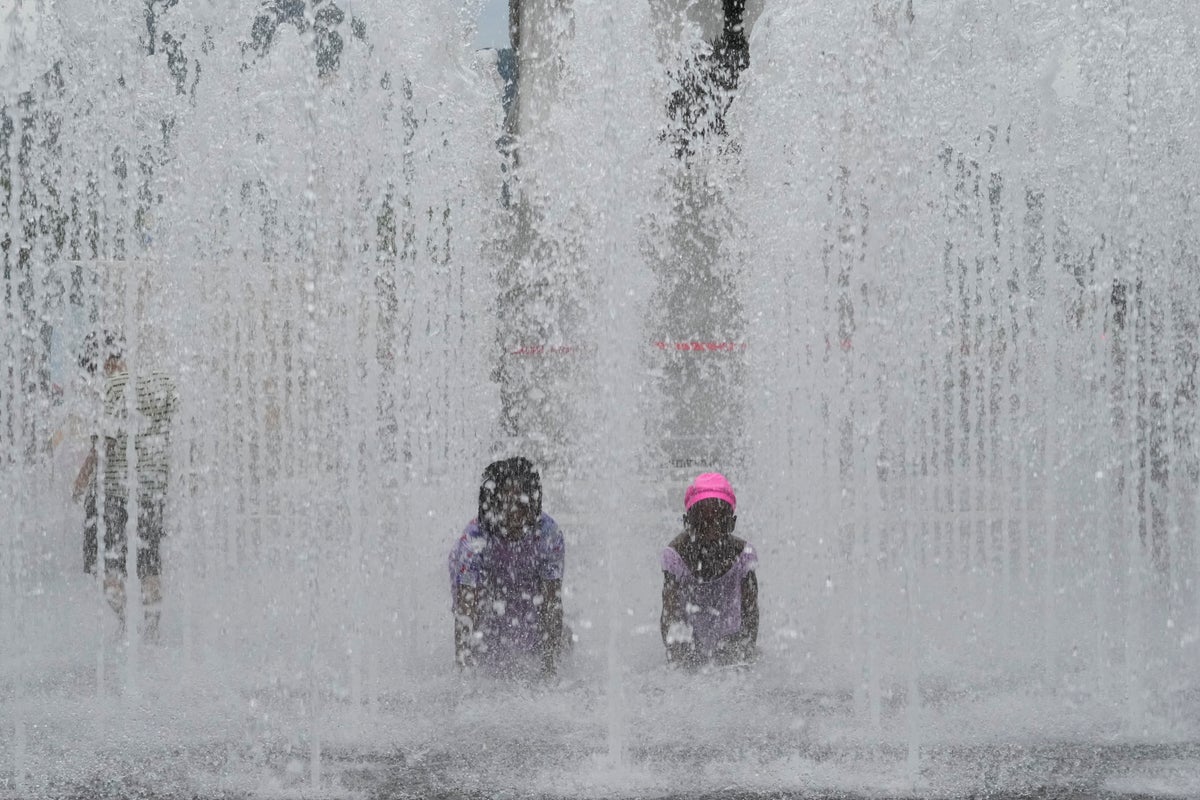From reproductive rights to climate change to Big Tech, The Independent is on the ground when the story is developing. Whether it’s investigating the financials of Elon Musk’s pro-Trump PAC or producing our latest documentary, ‘The A Word’, which shines a light on the American women fighting for reproductive rights, we know how important it is to parse out the facts from the messaging.
At such a critical moment in US history, we need reporters on the ground. Your donation allows us to keep sending journalists to speak to both sides of the story.
The Independent is trusted by Americans across the entire political spectrum. And unlike many other quality news outlets, we choose not to lock Americans out of our reporting and analysis with paywalls. We believe quality journalism should be available to everyone, paid for by those who can afford it.
Your support makes all the difference.
Read more
South Korea will require outdoor workers to take a mandatory 20-minute break every two hours during heatwaves, in a move aimed at tackling rising heat-related deaths.
The rule, expected to take effect next week, applies to construction, landscaping, delivery, and other outdoor occupations.
The mandate will come into effect whenever the temperature reaches 33C, something that’s now increasingly common in the East Asian country.
Employers who fail to comply may face work stoppages or suspension of business.
The government announced the rule on Friday.
It came after at least 28 people died from heat-related causes between 1 June and 8 July, according to data from the Korea Disease Control and Prevention Agency. Nearly half of the deaths occurred outdoors, including among workers in their 60s and 70s.

open image in gallery
People walk through a fountain amid a heatwave in Seoul (AP)
South Korea has recorded an average summer temperature of 24C since 1912 but has seen more frequent and prolonged heatwaves in recent years.
In 2018, the country declared a national disaster after temperatures soared past 40C in many areas and more than 4,500 people were hospitalised with heat-related conditions.
This year, the capital Seoul has already seen multiple days with the heat index above 33C. Rural areas have reported even higher figures.
The Seoul city government this week again said the extreme temperatures were a “disaster” that posed a threat to people’s lives.
Scientists have linked worsening heatwaves to the global climate crisis, which has also increased the risk of wildfires and droughts in the region.
In April, wildfires fuelled by heat, strong winds and dry conditions burned through parts of Gangwon province, prompting mass evacuations.
Authorities said that climate change was increasing both the intensity and frequency of such events, straining emergency response systems.
The government said employers would be expected to provide shaded rest areas and hydration during designated break times and that inspections would be conducted to ensure compliance with the new rule. Additional protections could be introduced depending on the severity of heat forecasts.
South Korea joins a growing list of countries introducing legal safeguards for workers as extreme heat becomes common. Japan, parts of the United States and the European Union have also issued heatwork guidelines or enacted similar laws in recent years.
